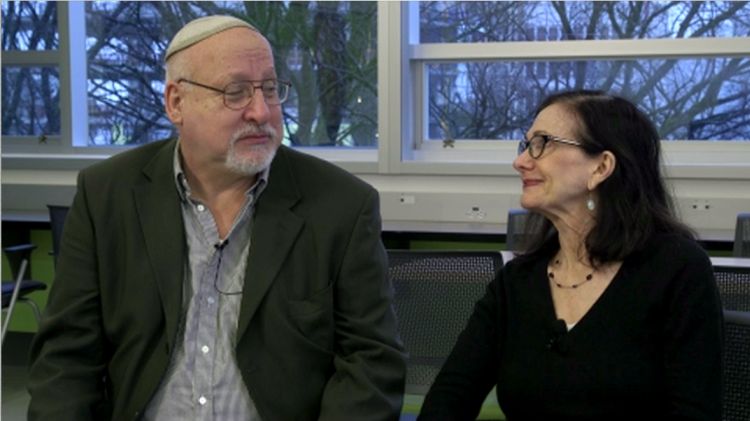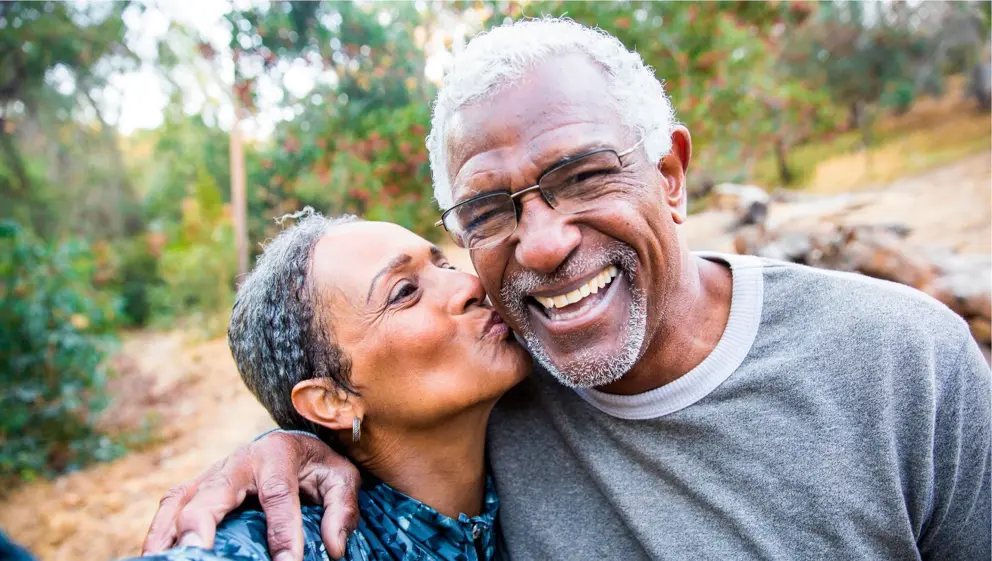Most stroke rehabilitation programs focus on the patient. But psychologist Dr. Christiane Hoppmann sees enormous potential in getting couples to work together.
“If you’re looking to make a lifestyle change, the influence a spouse has on their partner shouldn’t be overlooked,” says Dr. Hoppmann.
Working as a team
Following his stroke in January 2017, Robert Morrissette and his wife, Sandra Waserman, were looking for programs they could do together.
They were invited to participate in the PULSE (Partners Using Linked Strategies Effectively) study led by Dr. Hoppmann and an interdisciplinary team at UBC (including a geriatrician, a physiotherapist, a nutritionist, & a clinical psychologist), with funding from Heart & Stroke donors.
The study is looking at 100 stroke survivors and their partners, to investigate the impact partners have on each other’s health behaviour after a stroke. “Couples share lifestyles, when it comes to making behaviour changes, like eating a healthier diet or exercising more, what a spouse does makes a difference,” says Dr. Hoppmann. These types of changes can help improve recovery after a stroke and reduce the risk of a future incident.

When couples share similar lifestyles, it’s likely their spouse faces similar risk factors.
Research shows having a buddy can help people follow through on their goals. And a partner or spouse is a natural fit for the role, says Dr. Hoppmann, since they care about each others’ health, already live in the same environment, share resources and participate in many of the same activities.
“We’re trying to understand what people can do with the help of their spouse that would be difficult to do alone,” she says. “Many of the couples that we meet want to do better. They don’t want to have another stroke.”
Plus, she notes, making healthy changes may provide early prevention for the spouse too. “When couples share similar lifestyles, it’s likely their spouse faces similar risk factors.”
Planning for success
To get on the same page, Dr. Hoppmann says it’s important that couples first map out how a new behaviour will fit into their lives.
If you enjoy swimming, for example, look up the schedule at your local community centre and add it to your calendar as a standing date. And for any goal, she says, couples should have a back-up plan.
“Life will get in the way. The weather will be lousy, or you visit a friend’s house for dinner and they’ve cooked foods that aren’t part of your diet.”
For the study, participants’ everyday life is observed over a period of two weeks. Using iPads, each partner is prompted in the morning to input their plan for the day. At night, they share a progress report on how the day went.
The twice daily check-ins are intended to help participants tune into their behaviour and small actions they can take to help each other out, Dr. Hoppmann explains. Couples are also encouraged to use their tablets to photograph their meals.

PULSE participants Robert Morrissette and Sandra Waserman.
Wake up call
Robert says the pictures helped motivate him to make a change, “I didn’t realize how poorly I was eating until I saw Sandra’s photos. I wasn’t eating fruits or vegetables.”
“[For two weeks] you’re observing the other person and what they’re going through,” Sandra says. “It makes you more aware, more connected…. It woke us up in a couple of areas.”
Since completing the study, Robert and Sandra are eating more fruits and vegetables and incorporating more walking into their routine.
As part of the study, Dr. Hoppmann and her team measure participants’ cardiovascular risk factors including blood pressure, cholesterol levels, blood sugar and waist/hip circumference. Those numbers will be linked to couples’ reports of their everyday behaviour, to understand if working together is connected to better health outcomes.
Looking ahead, Dr. Hoppmann sees potential to identify the active ingredient that’s working with couples like Sandra and Robert, and teach others to do equally well.
“We want to know how to help stroke survivors, but the benefits that come out of this project might help other couples as well.”
- The PULSE study is currently recruiting couples from the Vancouver area specifically, and also from all across British Columbia, where at least one partner is a stroke survivor. Find out if you’re eligible at UBC PULSE study.
- Learn more about Heart & Stroke research

